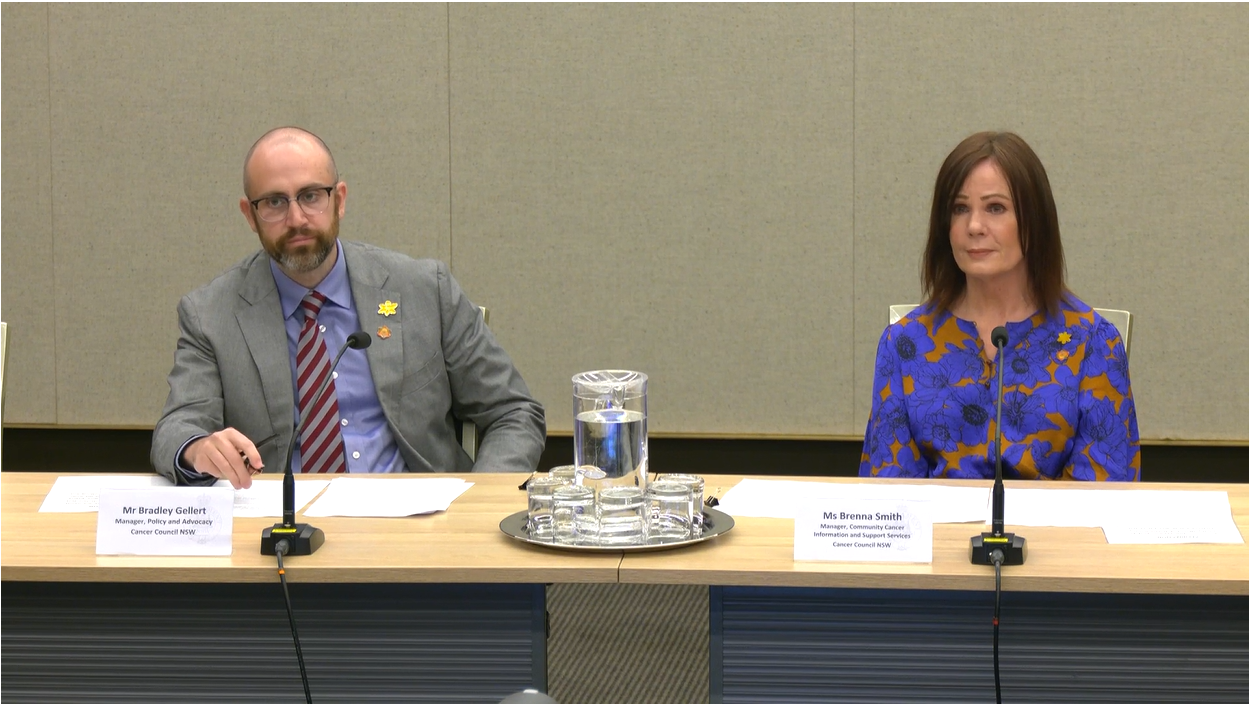
Cancer Council NSW was recently invited to appear before the Legislative Assembly's Committee on Community Services, inquiry into splitting the Hunter New England Local Health District (LHD). The focus of the inquiry was on whether this large LHD should be split to create betterhealth outcomes in rural and remote communities. We were there to advocate for one of the most pressing issues in regional healthcare: equity in cancer care.
A stark reality for rural and remote communities
While NSW has some of the best cancer outcomes in the world, this isn't the experience for everyone. People living in rural and remote areas continue to face significantly worse survival outcomes due to barriers in accessing timely, affordable, and culturally safe cancer care.
Sadly, parts of the Hunter New England LHD have some of the worst cancer survival outcomes in the state. For example, 5-year survival rates are 24% lower than the national average in Narrabri, 27% lower in Taree and Armidale and 31% lower in Cessnock.
These statistics aren't just numbers they represent real people and real communities being left behind.
What we told the Committee
We were proud to speak on behalf of rural and remote patients and carers who are often forced to travel over 100km for cancer treatment. For many, the journey isn't just long, it's exhausting, financially draining and a direct contributor to poorer health outcomes.
We made it clear: Transport and accommodation are not luxuries they are essential services for people in rural areas to access basic healthcare.
In our submission, we recommended:
- Annual reviews of the IPTAAS scheme with community (which helps with travel and accommodation costs)
- Fair pricing and clear pricing benchmarks for community transport
- Inclusion of not-for-profit transport providers like our Transport to Treatment service in local health planning
- Investment in culturally safe and responsive services, especially for Aboriginal peoples
- Equitable access to palliative care, no matter the location
Why it matters
Without proper support, people may delay or abandon treatment altogether. Long travel after intensive care can worsen side effects and even minor complications can become serious if medical help is hours away.
We've heard firsthand from patients who faced the heartbreaking decision to stop treatment because the logistical and financial burden became too much to bear.
This is why equity must be at the centre of every decision about rural and remote cancer care, from funding, to service planning, to transport design.
Working together for better outcomes
Every person in NSW deserves access to quality, timely and culturally appropriate cancer care regardless of where they live. We're committed to making that a reality.
Thank you to the Committee for the opportunity to speak and for prioritising rural and remote health. We welcome any further questions and look forward to ongoing collaboration.






